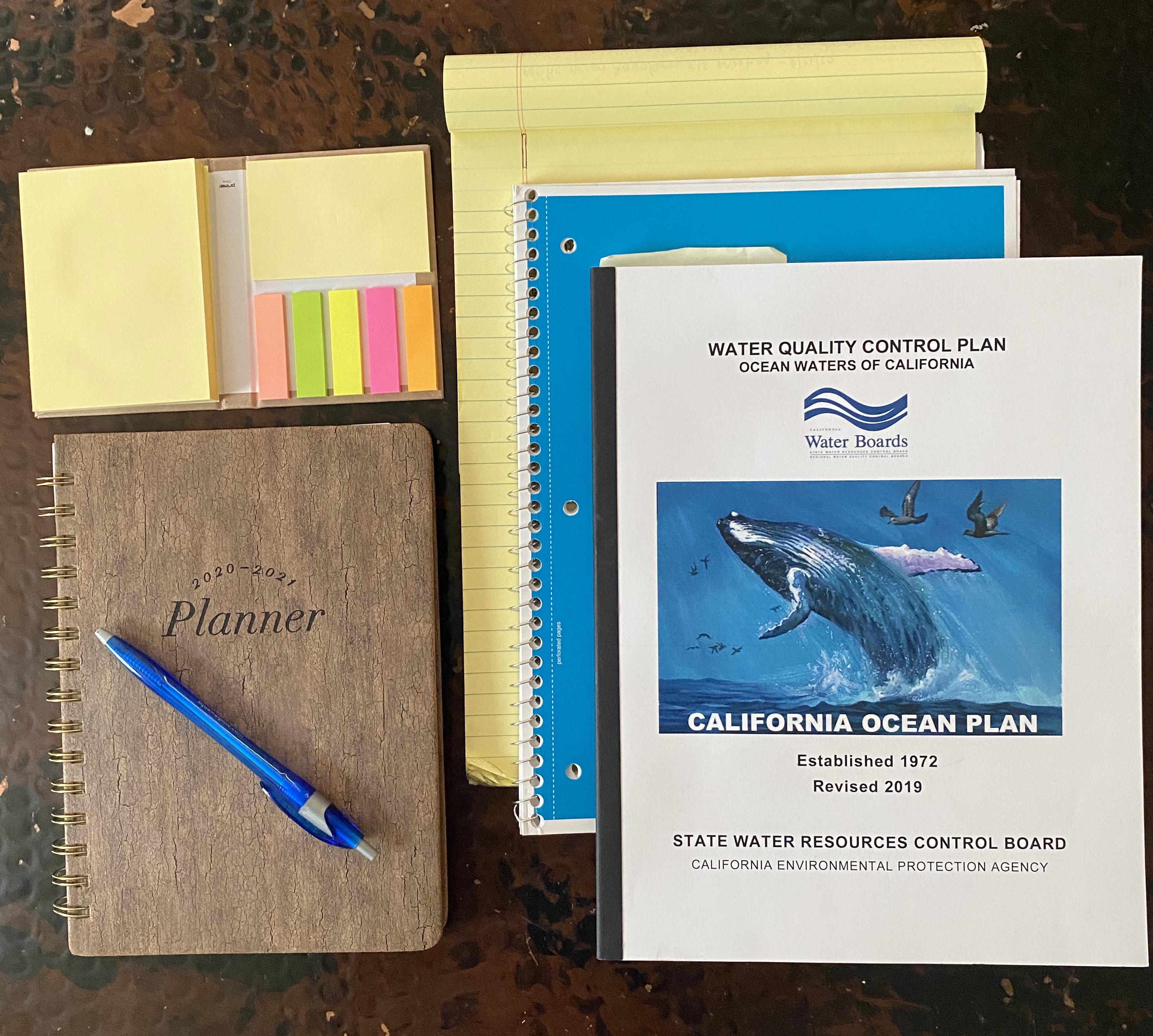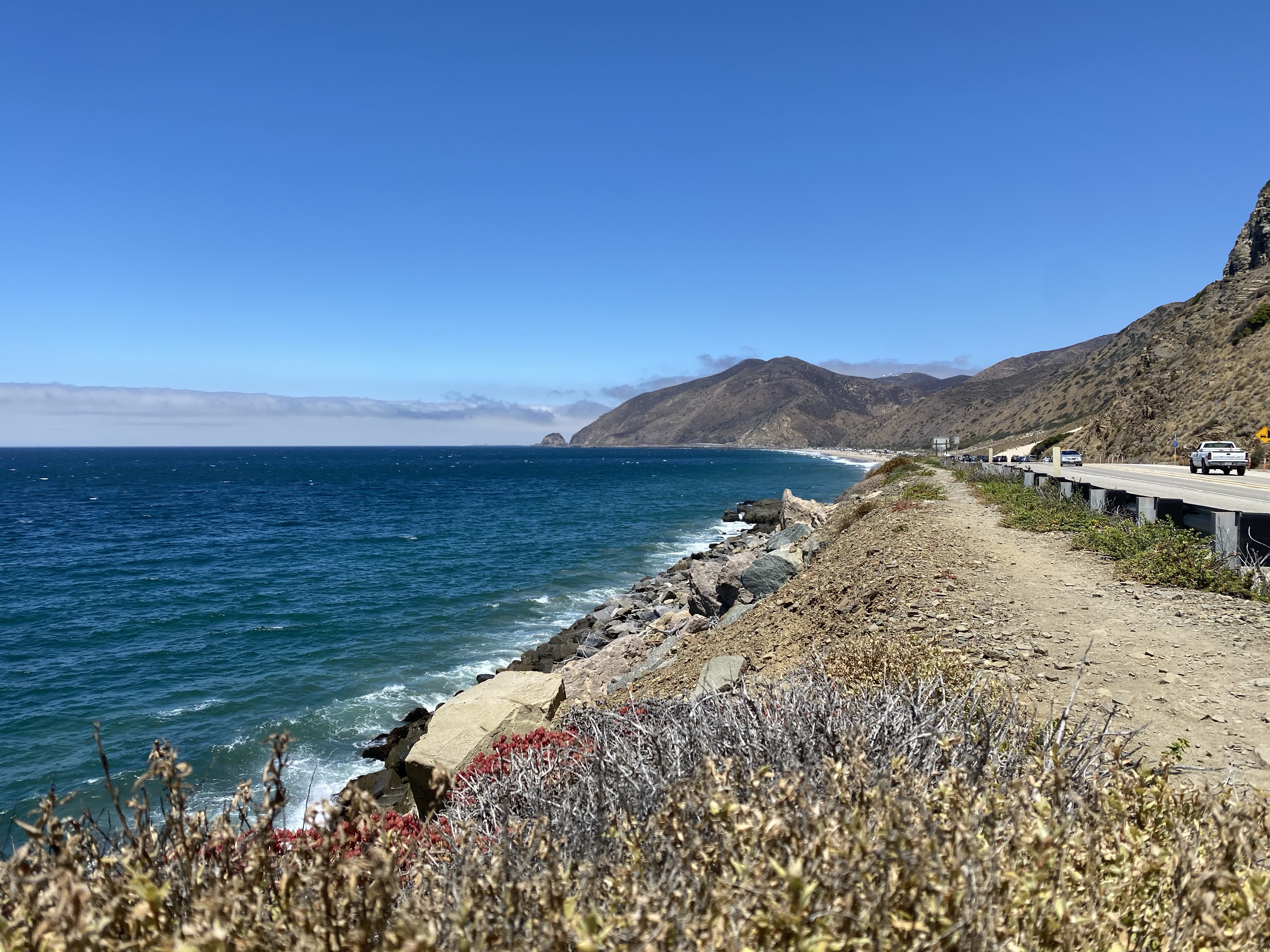Prior to becoming a Sea Grant fellow, I had the opportunity to work on water- and ocean-based legislation as an environmental lobbyist, where I often found myself both doing policy analyses of bills and writing comment letters. Learning to read bills and extract or add important information was a language all on its own.
Having been chosen by the State Water Resources Control Board (SWRCB) to work with their Ocean Standards Unit, I was excited to learn all about how the state organized their water policy. After getting my first assignment—to amend an exception to the Ocean Plan for USC Wrigley Marine Center on Santa Catalina Island—I couldn’t wait to get my feet wet both figuratively and literally.
What I found out, as I ventured into my new project, was that I had no real concept of what the regulatory language was referring to. I thought bills were a bit of a challenge, but the state policy plans posed a much greater one.
In order to not just learn the language of the SWRCB, but also embrace the challenge of working remotely, I created a strategy for myself to be successful.

Get organized
The first step in finding success was to make sure I had a schedule laid out at the beginning of every week. I’ve found that using my online calendar not only for meetings and appointments, but also deadlines for projects and reminders for tasks has been very helpful. I have also taken to using a notebook planner to mark off tasks as I move along throughout my day.
Learn the basics
Like any new language, starting with the basic principles will help build a better foundation for future work. When I first started, I was given copies of the 2019 California Ocean Plan as well as the Porter-Cologne Act. I read those booklets cover to cover, notating where I had questions and looking up references to other documents, policies, or amendments that appeared relevant. I also made sure I read through all the current projects going on in my unit, familiarizing myself with the material and who on my team would be the best source for questions.
Communicate (Ask questions!)
When learning new material, you will likely have questions or need explanations of terms or past projects. Don’t be afraid to schedule meetings or ask questions! Your team is excited to have someone else on board and they will want to help. However, being remote can be tricky and finding the time to talk isn’t always easy. I find having a pre-scheduled weekly (or bi-weekly) check-in with my supervisor to ask questions or just express concerns is very helpful. It also doesn’t hurt to reach out to other members of the team when my supervisor is busy and ask for short 15-30 minute calls to ask questions.
Be open to criticism
Even though it may be hard to handle at first, allowing your work to be edited and critiqued is very important in learning how to write using proper language and tone. The SWRCB (as with many other agencies) has a long chain of command, and documents will go through an extensive editing process. After working on responses to public comments for a controversial policy, my work was edited by six of my superiors and returned to me each time changes were made before it moved forward again. Though it takes some time, the continuous editing process has allowed me to transition my writing to match the tone of the SWRCB.
Be patient (And don’t forget to take breaks!)
While you have scheduled break times when you are working in the office, working remotely is uniquely challenging because of the lack of a clear schedule. You are also likely learning a lot of new material very quickly and it takes some time to adjust. Just like when you get organized for meetings, making sure you have time scheduled every day to take a break is vastly important for your mental and physical health. I personally enjoy taking walks around the neighborhood when I can, or going out and listening to bird calls. Sometimes, you may even want to take a quick nap, and I say go for it! Being at home can be exhausting and it’s critical we all pay attention to when we need a little more rest. Be kind to yourself.
Get your feet wet (Literally this time)
A big part of the fellowship for those in a non-COVID year would be travelling and getting to network in a number of ocean-front locations. As that has not been an option this past year, and may not be in the upcoming year, I say go find a body of water and let yourself relax on the weekends. Whether it’s an ocean, lake, river, or even a pool, most of us ocean-nerds need the water just like we need air. I’m grateful for all the opportunities I’ve had to see the ocean this year, and while it may not be Catalina Island, I think the central coast of California isn’t so bad either.





